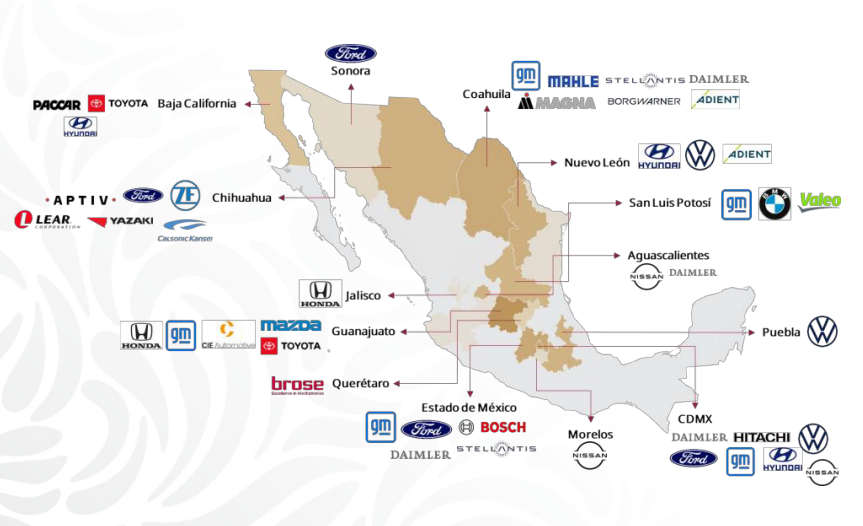The leading companies in electromobility in Mexico are General Motors, Volkswagen and Nissan, according to the Ministry of Economy.
From 2012 to the third quarter of 2024, Mexico had captured 74,978.6 million dollars of Foreign Direct Investment (FDI) in this industry.
The amount represents 17.0% of the total FDI flows that arrived to Mexico cumulatively until then.
The Ministry of Economy also has a record of 1,166 companies with FDI in this sector.
By law, the Ministry of Economy is prevented from disclosing FDI amounts by company.
Other relevant companies in this industry in Mexico are: PACCAR, Toyota, Aptiv, Lear Corporation, Ford, Yazaki, Hyundai, Magna, Stellantis, MAHLE, Adient, BMW, Valeo, Hitachi, Bosch, Brose, Mazda and Honda.
Leading companies in electromobility
Electromobility is the use of electric power to support transportation. Its future is basically the future of consumer electronics, connected driving.
Mexico ranked as the seventh largest producer of electric vehicles worldwide in 2023. It also ranked ninth as a global exporter of electric vehicles in that year. A total of 3,197 economic units operate in the electromobility sector in the country.
The following are the five main countries of origin of FDI in the electromobility sector in Mexico, from 2012 to the third quarter of 2024, in millions of dollars:
- United States: 20,241.
- Japan: 20,003.
- Germany: 18,256.
- South Korea: 4,638.
- Canada: 2,228.
German case
The global renewable energy industry reached a value of $881.7 billion in 2020. This figure is projected to grow to $1.977.6 billion by 2030, with a compound annual growth rate of 8.4 % between 2021 and 2030.
Currently, the most widely used renewable energy sources include solar, wind, hydro, tidal, geothermal and biomass.
In the electromobility sector, electric vehicle charging demand could reach 23 TWh per year in Germany by 2030 in a baseline scenario. However, in an accelerated adoption scenario, this figure could increase to 43 TWh, representing an 8 % growth over current energy demand.
According to Energy and Water Development Corp. this accelerated scenario would imply the presence of 16 million electric vehicles in Germany by 2030. This growth is aligned with studies conducted by the European Union and supported by its proposal to ban internal combustion engine vehicles, in addition to improvements in the efficiency of electric motors.

